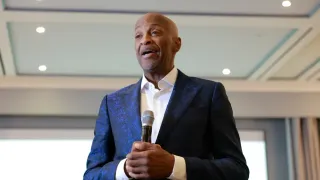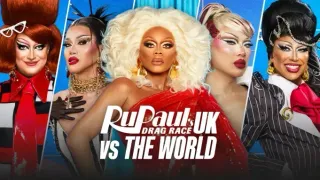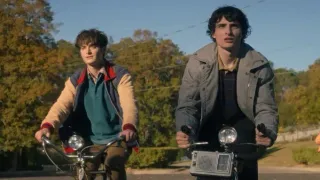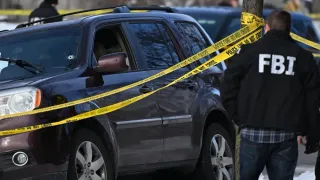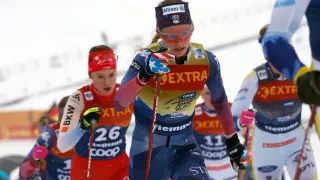June 6, 2015
The Confession
Jake Mulligan READ TIME: 2 MIN.
"The Confession," like many other films directed by Costa-Gavras, dramatizes semi-recent political events: Here it's the sham trial of twelve Czechoslovakian communists perpetrated by their Stalinist superiors, who were out to suppress "disloyal" countryman. Costa-Gavras regular Yves Montand plays the lead, Artur London-one of the only men on the trial who survived through the regime's rule.
Another trademark of the director is his obsession with process: He was always using meticulously-organized editing patterns and narrative structure to depict the way that political power is established, defended, and eventually broken down. But here it's psychology that's being broken down instead of a political power. London is kidnapped in an early scene, and most of the film watches -- in chilly long takes, shot at a distance -- as he's physically tormented and mentally manipulated. (His captors demand he confess to crimes he's not even aware of.) Eventually those long takes all begin to bleed together, with timelines getting crossed and new interrogators springing into the frame like the pails of water tossed into London's face.
Then Costa-Gavras pushes the scenario far beyond the realm of specific political critique. London's captors begin training him to give the eponymous confession, and we get inundated with absurd images of the process, like London practicing his "lines" from a script, all while resting under a sunlight, so that his ashen frame won't betray his tortured state once he walks into court. The courts of law themselves become a space for absurd political theater, with the film itself begging us to peer behind the curtain.
Criterion's Blu-ray release of "The Confession" looks astounding: It's a new restoration of the film, supervised by Costa-Gavras himself. And the cinematography of Raoul Coutard appears dense despite low lights, textured with a nuanced color palette, and filmic in its overall appearance. The disc also contains a large number of extra features, led off by a set of interviews. There are talks with Yves Montand (he discusses his preparation and his inspiration), editor Francoise Bonnot (who edited nine of the director's films), and author John Michalczyk (who speaks about Costa-Gavras' political identity at the time of the film's release). There's also excepts from an archival interview with Artur and his wife, providing us some words from the subject of the film.
Following that, there's an extended talk with Costa-Gavras himself: He speaks for over an hour, via a talk recorded at a film festival in the late 90s (he spends passages on each of his celebrated early films, including "Confession" and the also-just-released-to-Blu-ray "State of Siege"). Then there's the crown jewel of the extra features: A 30-minute short film shot by Chris Marker ("Sans Soleil," "La Jetee,") on the set of "The Confession," where he was employed as a photographer.
Marker gets interviews with some of the aforementioned cast and crew-most notably, with Montand and Costa-Gavras. Both of them portray their own struggle through the film's troubling topics as a necessity -- as a way of working through their own political beliefs. Weaving through their testimonies, Marker finds the unrelenting fury that hides beneath this transfixing reserved film.
"The Confession"
Blu-ray
Criterion.com
$39.95

